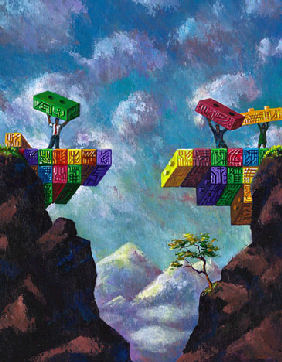The Globe and Mail reports that a “small but determined group of computer geeks [is] trying to translate open-source software into African languages, in an effort to reach the continent most isolated by the digital divide.”

Example:
In Uganda, a small team of information-technology entrepreneurs is testing a Lugandan-language version of the open-source Web browser Mozilla, which they hope to have ready in two weeks. After that, they will get to work on a Lugandan version of Open Office.
. . . [the] team will eventually translate software into the 15 most common languages in Uganda (there are about 40), but for now they would be content with Lugandan.
O-kay . . . the relevance of this work seems dubious to me in light of the fact that a) the official language of Uganda is English; and b) not only does almost no one in Uganda have access to a PC, but half the population does not have access to clean water.
This just in from Abraham Maslow: It doesn’t make sense to give open source spreadsheets to people who lack the basic means of survival.
Another example:
Most African languages lack a technical vocabulary, and that presents some challenges for the translators . . . Take recycle bin, for example. In Tanzania, the concept of recycling is virtually unknown, and bins are a luxury item.
Hmmm . . . that must be very challenging indeed, but again, is this really a serious problem in a country with a double-digit infant mortality rate and a per capita income of $270?
Let’s try to maintain some sense of perspective: Most countries in Africa are very poor countries, and while it’s true that people living in these countries have almost no access to technology, they also lack access to adequate nutrition and basic health care.
As a result, their lives tend to be short and precarious.
Providing a university professor in Dar es Salaam with the ability to IM someone in Swahili while the rest of the country dies of malaria — isn’t that more of a mockery than a service?
Related Links
- The Bill and Melinda Gates Foundation
Bill Gates is one of the few technologists who gets that technology is not the solution to every problem. The Gates Foundation has donated several billion dollars to global health projects — vaccines, HIV prevention, reproductive health care — that address the problems of developing countries at a far more relevant level.

2 comments for “Into the Digital Abyss”